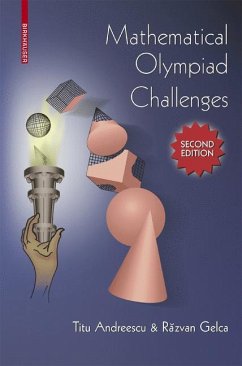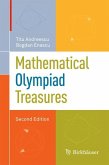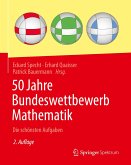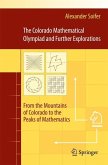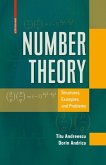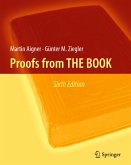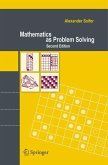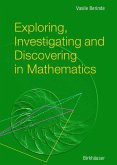This significantly revised and expanded second edition of Mathematical Olympiad Challenges is a rich collection of problems put together by two experienced and well-known professors and coaches of the U.S. International Mathematical Olympiad Team. Hundreds of beautiful, challenging, and instructive problems from algebra, geometry, trigonometry, combinatorics, and number theory from numerous mathematical competitions and journals have been selected and updated. The problems are clustered by topic into self-contained sections with solutions provided separately. Historical insights and asides are presented to stimulate further inquiry. The emphasis throughout is on creative solutions to open-ended problems.
With many new or expanded examples, problems, and solutions, this second edition includes completely rewritten discussions preceding each of the 30 units, as well as a more user-friendly style with more accessible and inviting examples. Featuring enhanced motivation for advanced high school and beginning college students, as well as instructors and Olympiad coaches, this text can be used for creative problem-solving courses, for professional teacher development seminars and workshops, for self-study, or as a resource for training for mathematical competitions.
Why Olympiads? Working mathematiciansoftentell us that results in the ?eld are achievedafter long experience and a deep familiarity with mathematical objects, that progress is made slowly and collectively, and that ?ashes of inspiration are mere punctuation in periods of sustained effort. TheOlympiadenvironment,incontrast,demandsarelativelybriefperiodofintense concentration,asksforquickinsightsonspeci?coccasions,andrequiresaconcentrated but isolated effort. Yet we have foundthat participantsin mathematicsOlympiadshave oftengoneontobecome?rst-classmathematiciansorscientistsandhaveattachedgreat signi?cance to their early Olympiad experiences. For many of these people, the Olympiad problem is an introduction, a glimpse into the world of mathematics not afforded by the usual classroom situation. A good Olympiad problem will capture in miniature the process of creating mathematics. It's all there: the period of immersion in the situation, the quiet examination of possible approaches, the pursuit of various paths to solution. There is the fruitless dead end, as well as the path that ends abruptly but offers new perspectives, leading eventually to the discoveryof a better route. Perhapsmost obviously,grapplingwith a goodproblem provides practice in dealing with the frustration of working at material that refuses to yield. If the solver is lucky, there will be the moment of insight that heralds the start of a successful solution. Like a well-crafted work of ?ction, a good Olympiad problem tells a story of mathematical creativity that captures a good part of the real experience and leaves the participant wanting still more. And this book gives us more.
With many new or expanded examples, problems, and solutions, this second edition includes completely rewritten discussions preceding each of the 30 units, as well as a more user-friendly style with more accessible and inviting examples. Featuring enhanced motivation for advanced high school and beginning college students, as well as instructors and Olympiad coaches, this text can be used for creative problem-solving courses, for professional teacher development seminars and workshops, for self-study, or as a resource for training for mathematical competitions.
Why Olympiads? Working mathematiciansoftentell us that results in the ?eld are achievedafter long experience and a deep familiarity with mathematical objects, that progress is made slowly and collectively, and that ?ashes of inspiration are mere punctuation in periods of sustained effort. TheOlympiadenvironment,incontrast,demandsarelativelybriefperiodofintense concentration,asksforquickinsightsonspeci?coccasions,andrequiresaconcentrated but isolated effort. Yet we have foundthat participantsin mathematicsOlympiadshave oftengoneontobecome?rst-classmathematiciansorscientistsandhaveattachedgreat signi?cance to their early Olympiad experiences. For many of these people, the Olympiad problem is an introduction, a glimpse into the world of mathematics not afforded by the usual classroom situation. A good Olympiad problem will capture in miniature the process of creating mathematics. It's all there: the period of immersion in the situation, the quiet examination of possible approaches, the pursuit of various paths to solution. There is the fruitless dead end, as well as the path that ends abruptly but offers new perspectives, leading eventually to the discoveryof a better route. Perhapsmost obviously,grapplingwith a goodproblem provides practice in dealing with the frustration of working at material that refuses to yield. If the solver is lucky, there will be the moment of insight that heralds the start of a successful solution. Like a well-crafted work of ?ction, a good Olympiad problem tells a story of mathematical creativity that captures a good part of the real experience and leaves the participant wanting still more. And this book gives us more.
From the reviews:
"The authors are experienced problem solvers and coaches of mathematics teams. This expertise shows through and the result is a volume that would be a welcome addition to any mathematician's bookshelf." -- MAA Online
"This [book] is...much more than just another collection of interesting, challenging problems, but is instead organized specifically for learning. The book expertly weaves together related problems, so that insights gradually become techniques, tricks slowly become methods, and methods eventually evolve into mastery.... The book is aimed at motivated high school and beginning college students and instructors. It can be used as a text for advanced problem-solving courses, for self-study, or as a resource for teachers and students training for mathematical competitions, and for teacher professional development, seminars, and workshops.
I strongly recommend this book for anyone interested in creative problem-solving in mathematics.... It has already taken up a prized position in my personal library, and is bound to provide me with many hours of intellectual pleasure." -- The Mathematical Gazette
"The Olympiad book is easier to describe since the format of the Olympiad competition and the books it has spawned will be well known to most Gazette readers. ... The authors have organised the material to reduce the pain ... and to make the material a genuine learning experience for Olympian hopefuls and their teachers. ... a valuable addition to the problem literature, and their organisational features are generally helpful rather than merely attempts to look different." -- John Baylis, The Mathematical Gazette, July, 2004
"The authors are experienced problem solvers and coaches of mathematics teams. This expertise shows through and the result is a volume that would be a welcome addition to any mathematician's bookshelf." -- MAA Online
"This [book] is...much more than just another collection of interesting, challenging problems, but is instead organized specifically for learning. The book expertly weaves together related problems, so that insights gradually become techniques, tricks slowly become methods, and methods eventually evolve into mastery.... The book is aimed at motivated high school and beginning college students and instructors. It can be used as a text for advanced problem-solving courses, for self-study, or as a resource for teachers and students training for mathematical competitions, and for teacher professional development, seminars, and workshops.
I strongly recommend this book for anyone interested in creative problem-solving in mathematics.... It has already taken up a prized position in my personal library, and is bound to provide me with many hours of intellectual pleasure." -- The Mathematical Gazette
"The Olympiad book is easier to describe since the format of the Olympiad competition and the books it has spawned will be well known to most Gazette readers. ... The authors have organised the material to reduce the pain ... and to make the material a genuine learning experience for Olympian hopefuls and their teachers. ... a valuable addition to the problem literature, and their organisational features are generally helpful rather than merely attempts to look different." -- John Baylis, The Mathematical Gazette, July, 2004

